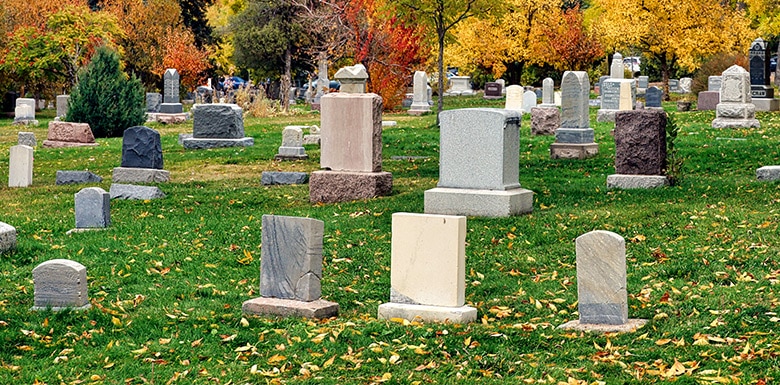Can You Sue a Cemetery for Negligence in Alabama?
You may wonder who is responsible if your loved one’s remains or grave are mishandled. In Alabama, you may be able to sue a funeral home or cemetery for negligence and recover financial compensation. There are three main avenues an attorney might pursue in your negligence lawsuit:
1. Breach of Contract
Suing for breach of contract involves showing that the cemetery or funeral home failed to fulfill its obligations outlined in the contract. You’ll need strong evidence for a successful claim.
The key requirements are a valid contract outlining agreed-upon services, a clear breach by the cemetery or funeral home (such as failing to deliver services, mishandling remains, or overcharging), and proof of damages you suffered (financial loss or emotional distress).
Your attorney can analyze the contract’s language and identify specific instances where the cemetery failed to meet its obligations. In addition, your lawyer can gather evidence such as receipts, witness statements, and correspondence between you and the service provider to support your claim.
2. Negligence
Suing a cemetery or funeral home for negligence requires proving they failed in their duty of care towards your loved one or the gravesite. This involves several steps:
- Demonstrate a legal duty of care existed. In signing a contract with a funeral home, you expected them and the cemetery to meet their obligation to treat remains and burial procedures respectfully and professionally.
- Prove a breach of the duty of care by showing the cemetery or funeral home acted negligently, such as in any of the examples outlined above.
- Demonstrate this breach caused you harm. This could be emotional distress from mishandling remains, financial loss due to needing to fix their mistakes, or property damage at the gravesite.
You’ll also need evidence to support your claim, such as contracts, receipts, photos of damage, and witness statements, which your attorney can help compile.
3. Misrepresentation
Misrepresentation occurs if the cemetery or funeral home provides false or misleading information regarding their services, products, or contract terms. This could include misleading advertising, false promises regarding the quality of services, or providing inaccurate information about burial plots or pricing.
A typical example of this is misrepresenting a “green burial,” performing a service different from what the customer expected, or providing a service the family would not have chosen if the contract had been clear. As with other lawsuits, evidence is vital to support your claim.
This could include brochures with misleading information, emails or recordings of conversations where false promises were made or altered contracts not reflecting your agreed-upon services.
